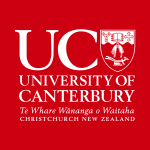About Master Of Health Sciences in University of Canterbury
UC's Health Sciences qualifications give health professionals, non-clinical members of the health workforce and others interested in the health sector or health issues the opportunity to examine critically a range of significant issues in health sciences, and where relevant to improve their professional practice.
The Master of Health Sciences allows you to put together a postgraduate programme of study across health-related disciplines, such as the functioning of the health system, from the management of health information to health in communities. The increasing focus on prevention and lifestyle change provides enormous potential for a refocusing of health strategies and allied areas such as education, sport and recreation, and local government.
The Master of Health Sciences (MHSc) is a research-inclusive qualification worth 240 points. Students are supervised by some world-leading researchers in the School of Health Sciences.
The MHealSc contains two parts:
- Part I of the Master of Health Sciences degree is equivalent to the one-year full-time Postgraduate Diploma in Health Sciences qualification
- Part II of the Master of Health Sciences involves the production of an independent thesis, whether it's the production of a thesis only or the completion of a combination of papers and a shorter thesis.
UC School of Health Sciences draw on their public health expertise to prepare graduates of the Health and Community major with the skills and knowledge to design and implement evidence-based health interventions in community settings.
This major helps students understand how communities contribute to health and well-being to increase the effectiveness of health promotion. Current and future workers within the fields of primary health, health promotion, public health and not-for-profit health organisations will benefit from this course of study.
The Health and Community endorsement will prepare students so that they can be employable and/or provide leadership in community health within Aotearoa New Zealand and internationally.
Further study
UC offers a Doctor of Philosophy in Health Sciences.
Career opportunities
Many graduates continue to work within their health profession while others work in health-related fields, the social services, or local or central government.
Bachelors: No specific cutoff mentioned
- Applicants must have completed a relevant bachelor's degree or appropriate health professional qualification or the Postgraduate Diploma in Health Sciences (or equivalent) with at least a B average
- The minimum requirement is a three-year bachelor’s degree from a New Zealand university or a qualification or combination of qualifications considered to be equivalent
English language requirements for postgraduate qualifications
If you want to study towards a postgraduate qualification, eg a Postgraduate Diploma, Masters, or PhD you must have one of the following:
ENGLISH TEST
- IELTS -Academic An average score of 6.5, with a minimum of 6.0 in reading, writing, listening and speaking
- TOEFL iBT -Total minimum score of 90, minimum score of 19 in reading, writing and listening. Please note UC only accepts TOEFL iBT scores from a single test date, not MyBest scores.
- TOEFL PBT - With a minimum score of 575 and TWE with a minimum score of 4.5
- CCEL EAP- Level 2 with a minimum B+ grade
- CAE or CPE- Score of 176 with a minimum of 169 in reading, writing, listening and speaking
- Pearson Test of English (Academic)- PTE with an overall score of 58 and no PTE communicative skills score below 50
- NZCEL- Level 5
University of Canterbury Highlights
| University Type |
Public University |
| Campus Setting |
Urban |
| Establishment Year |
1873 |
| No. of Campuses |
1 main campus |
| No. of Residence Halls |
10 |
| Graduate Job Rate |
89.9% (full time) |
| Research Funding |
Above 600,000 NZD pa |
| Cost of Attendance |
29,550 NZD pa |
| Applications Accepted |
Online |
| Work-Study |
Available |
| Intake Type |
Semester wise |
| Mode of Program |
Full time and online |
University of Canterbury Tuition fee
| Courses |
UG |
PG |
Doctorate |
| Arts |
25,500-30,200 |
29,000-33,800 |
6,749 |
| Business |
28,100 |
29,900 |
7,066 |
| Engineering |
42,000 |
42,000 |
8,130 |
| Science |
32,000 |
34,900-36,600 |
7,062–7,855 |
| Law |
30,200 |
33,800 |
7,066 |
New Zealand Living Expenses
You'll require between $20,000 and $25,000 a year ($380–480 per week) for housing/rent, food, transportation, phone bills, internet usage, and entertainment, in addition to your tuition and insurance fees. The average living expense will be the same for everyone, regardless of their tuition or course price. Please keep in mind that these are only suggestions; the Immigration New Zealand requirement is $15,000 per year including return travel or an additional $2,000.
| General expenses |
Cost
(in NZ dollars) |
| Rent (per month) |
$800–$950 |
| Groceries (per week) |
$100–$150 |
| Gym membership (per year) |
$300 |
| Entertainment (per week) |
$50 |
| Milk (per litre) |
$3 |
| Coca Cola (per can) |
$2 |
| Cup of Coffee |
$3–$5 |
| Lunch from University food hall or campus café |
$7–$12 |
| Local calls made from a cell-phone |
$0.50–$1.50 |
| Taxi - 5 km ride |
$10–$12 |
| Movie ticket |
$10–$14 |
| Visit to doctor |
$45–$85 |
